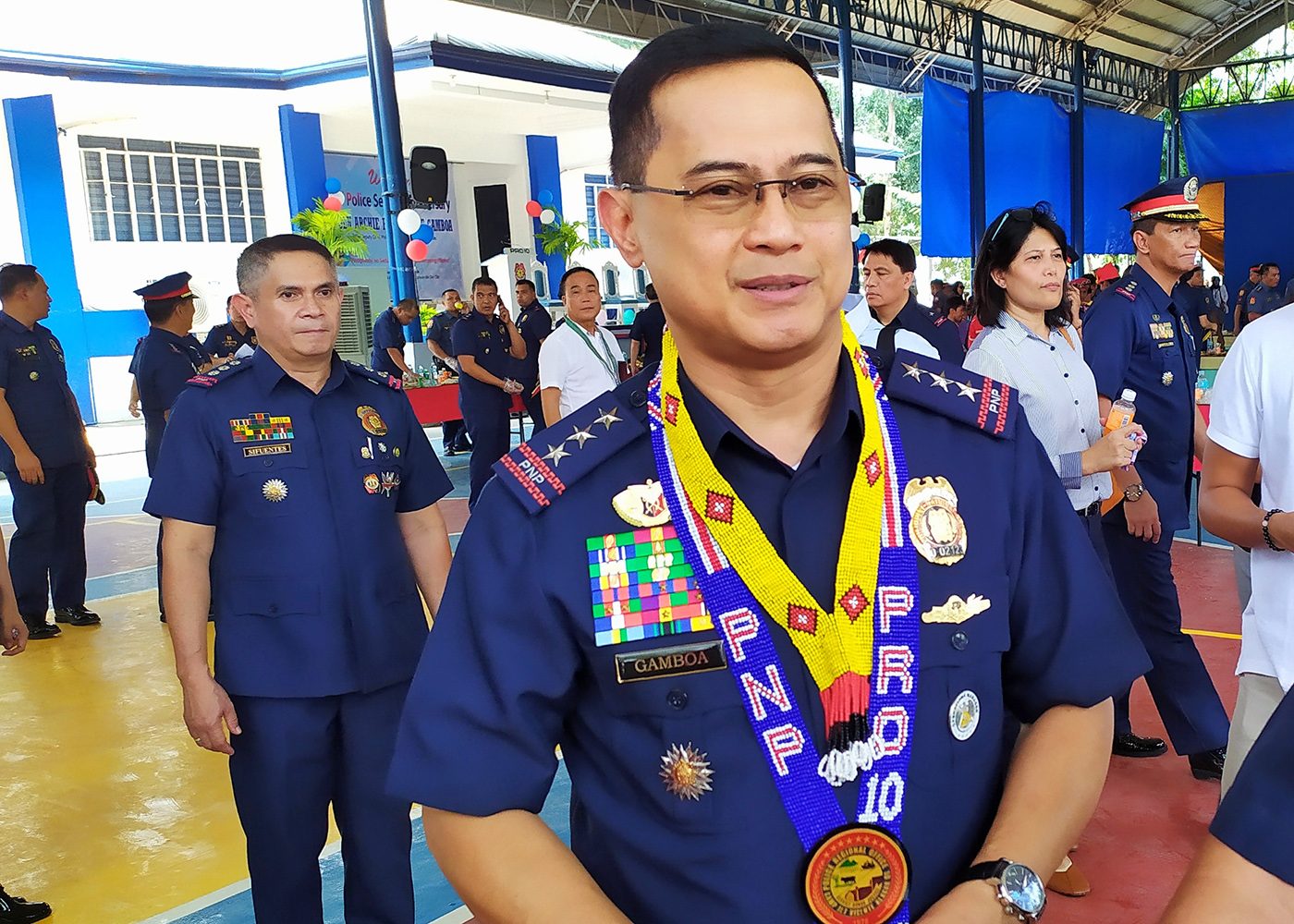SUMMARY
This is AI generated summarization, which may have errors. For context, always refer to the full article.

CAGAYAN DE ORO CITY, Philippines – Philippine National Police (PNP) Deputy Director General for Operations, Police Lieutenant General Archie Francisco Gamboa, said the PNP will follow the order of President Rodrigo Duterte to rearrest former convicts released through the Good Conduct Time Allowance (GCTA) law unless a court order stops them from doing so.
Gamboa on Monday, September 16, said the PNP is only following the lead of the Department of Justice (DOJ) .
“We always take cue from the Department of Justice. What is the interpretation of the executive (branch of government), the PNP will just follow because remember, the PNP is under the jurisdiction of the executive branch of the government,” Gamboa said during a visit at Camp Vicente Alagar for the 118th anniversary of the PNP.
Cagayan de Oro City 2nd District Congressman Rufus Rodriguez, one of the principal authors of the GCTA law, had earlier said prisoners released under the GCTA law cannot be rearrested without a warrant of arrest. He advised those released under the GCTA to wait for a warrant of arrest.
According to Police Lt. Col. Mardy Hortillosa, regional police spokesperson, 16 former convicts across Northern Mindanao have turned themselves in to the PNP as of Saturday, September 14.
Gamboa said he would leave it up to the court, should there be questions on the warrantless arrest of the former convicts.
However, Gamboa defended the PNP for taking custody of the convicts who have turned themselves over to the police. “Before final interpretation by the courts, our execution, our implementation of the executive, is always presumed regular and right. Unless questioned and later on reversed by the court, that’s how the entire mechanism works,” he said.
“As yet, we follow the DOJ guidelines. Should they say arrest and bring them back to the Bureau of Corrections, then we do that. If they want to question and they want to go to court, then that is their privilege,” Gamboa said.
Gamboa added he was unaware if anyone has already challenged the actions of the PNP on the rearrest of former convicts released under the GCTA law.
Asked by Rappler if the PNP distinguishes between those convicted of heinous crimes from those who served sentence for low-level crimes when they rearrest the former inmates, Gamboa said there lies the conflict because of the “vagueness” of the GCTA law.
“The (GCTA) law is vague. There are many interpretations. That is why the court should interpret it. If the law is wanting or if there is a deficiency on the implementation of the exective, it is now up to the court to decide, ” Gamboa added.
The GCTA law allows the early release of prisoners from penitentiaries for their good behavior while locked up. However, convicts of heinous crimes are exempted from GCTA.
The announcement of the DOJ in August that former Calauan, Laguna Mayor Antonio Sanchez was among the prisoners to be released this year under the GCTA caused public outrage.
Sanchez was convicted in 1995 for the deaths of University of the Philippines-Los Baños students Eileen Sarmenta and Allan Gomez in 1993.
The Senate blue ribbon committee is investigating the supposed early release of Sanchez and how inmates and BuCor officials allegedly collude to circumvent the GCTA law. – Rappler.com
Add a comment
How does this make you feel?





There are no comments yet. Add your comment to start the conversation.